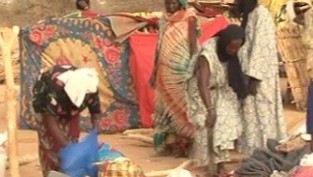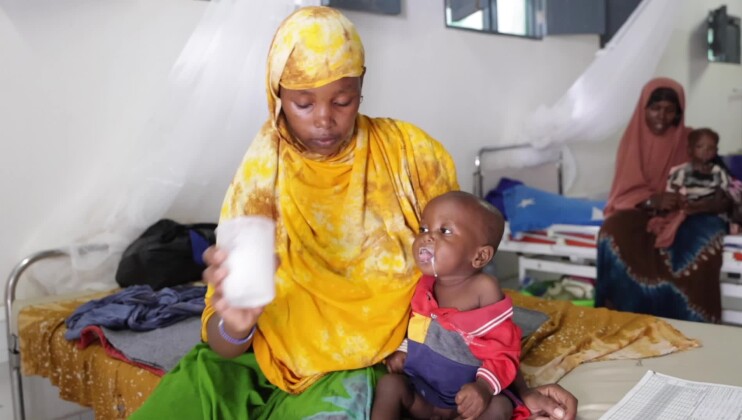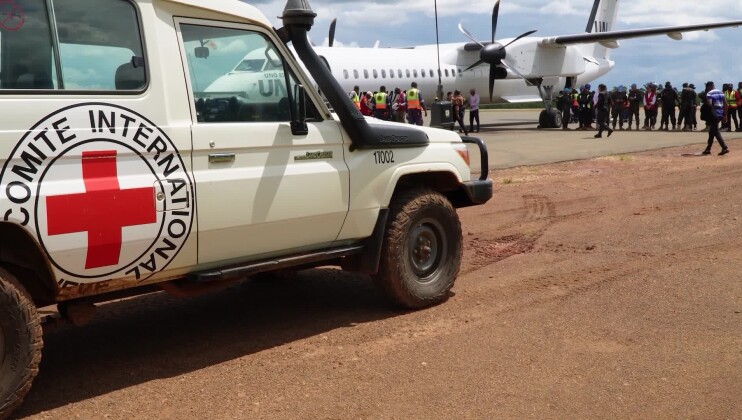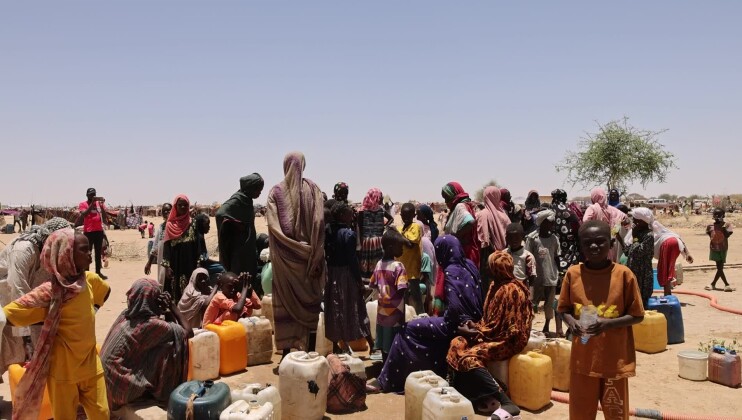Niger population and Malian refugess hard hit by food crisis

This is a modal window.
Already hard hit by a mediocre growing season in 2011-2012, characterized by rainfall badly distributed in time and place, the population in North Tillabéry has to share its meagre resources with the many refugees arriving from Mali. According to the authorities in Niger, more than 30,000 Malians from the Ménaka area and an estimated 8,000 Niger nationals living in Mali have found refuge in Niger since the beginning of the year, fleeing the fighting between government forces and armed groups.
AmanitaWalid, from Ménaka, arrived in Niger with nothing but the clothes on her back. Members of her family and other people she knew ended up scattered across several sites. Despite these difficulties, she had a real sense of security: "The real change when we arrived here was not hearing any more gunfire."
On 7 May, the ICRC and the Red Cross Society of Niger completed a distribution of food for over 110,000 people. Each household (six people on average) in 75 villages of the Ouallam, Banibangou and Abala departments in the Tillabéry area was given 200 kilograms of millet - enough to cover their grain needs for four months. In addition, 20 grain banks were topped up to make an additional supply available if needed.
Between January and March, the ICRC had already distributed food to approximately the same number of people and agricultural seed to 60,000 people (each household was given 20 kilograms of improved millet seed and five kilos of cowpea seed). The rainy season, expected to begin in June, is awaited with impatience.
In Garbey (where the footage was shot), a village about 50 kilometres from the Malian border, the food crisis reduced the food available for people and livestock to almost nothing. The most vulnerable people - residents and refugees alike - take desperate measures, such as reducing the number of meals they eat each day, selling off their animals for next to nothing, and moving to places less affected by the crisis. Others are forced to prepare their food out of baobab leaves... The solidarity of the Niger population with Malian refugees cannot possibly be sufficient, however, for everyone to be able to eat.
Beyond vital deliveries of food and other emergency aid, the ICRC and the Red Cross Society of Niger have begun innovative and cooperative programmes.
In Tizégorou (another location used for the footage, also in the Tillabéry area), a farming village 207 kilometres from the capital Niamey, a "cash for work" programme aims to restore degraded soil, cut back invasive trees, and build river weirs to catch rainwater so that it is easier to produce fodder for livestock. In return for this work, people are given cash that they can use to meet their basic needs and settle debts that they have taken on during this very difficult period.
According to the Niger authorities, almost 35 per cent of households in the country - over 5.4 million people - are affected to varying degrees by food insecurity. The grain shortage is put at 692,000 tonnes.
SHOTLIST AND LATEST OPERATIONAL UPDATE (FRE AND ENG) ARE ATTACHED TO DOWNLOAD ALONG WITH MPEG2 OF VIDEO



